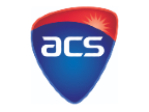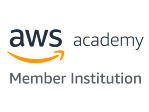Master of Information Technology
The Master of Information Technology provides the knowledge and skills required to design, develop and maintain complex systems using state-of-the-art technologies and methodologies. It includes a general introduction to ICT and provides the opportunity for students skills in system security and anti-hacking to gain advanced specialist skills in areas such as networks, software development, and information systems analysis skills in system security and anti-hacking.
Students also have the opportunity to apply their skills through industry-related project work, including industry-linked projects for real clients. This project work can demonstrate students’ skills and knowledge to potential future employers.
If you have an IT background or IT related degree you may be able to apply for our 12-unit Master of Information Technology (Professional Computing).
This course is accredited by the Australian Computer Society (ACS). 
We are a member institution of AWS Academy
Swinburne Sydney offers AWS Academy Cloud Foundations as part of its Master of Information Technology (Professional Computing), Master of Information Technology, and Master of Data Science courses.
AWS Academy Cloud Foundations is a course developed and maintained by AWS.

Duration
2 years full-time
Intakes
September 2024 | February 2025
Study modes
Full-timeStudy fees
See ‘Course fees & requirements’ below

“At Swinburne Sydney, the teaching environment, academic staff and student mentors are really helpful. One of the best aspects of the Swinburne experience is the link with the practical work environment. I am very confident that my degree will equip me with the skills and knowledge to work in the ICT industry anywhere in the world.”
Shabina
Master of Information Technology studentCourse information in detail
- Course detail, course structure and units of study.
The Master of Information Technology course is concerned with the mastery of theoretical knowledge and practical skills related to the design, construction, operation, support and maintenance of information technology (IT) solutions.
This course will provide you with advanced skills and introduces state-of-the-art techniques used in the design and construction of IT solutions, as well as the research skills needed to assess the effectiveness of a solution or technology. You will gain specialist skills and should become capable of working with information technology solutions at an advanced level.
This course provides graduates with knowledge and skills allowing them to seek professional work at an advanced level in the field of Information and Communication Technologies (ICT), and as a pathway for research and further learning
The Master of Information Technology provides graduates from non-IT backgrounds a path to seek a career in IT.
Course structure
To qualify for the award of Master of Information Technology, students must complete 14 units of study (200 credit points) as follows:
- 6 IT core units (75 credit points)
- 1 specialisation (100 credit points) consisting of:
- 2 core units (25 credit points)
- 4 technology projects (75 credit points)
- 2 electives (25 credit points)
Units of study
Core units
Complete all six units (75 credit points):
- COS60004 Creating Web Applications
- COS60009 Data Management for the Big Data Age
- COS70004 User-Centred Design
- COS80001 Cloud Computing Architecture
- COS80021 Web Application Development *
- COS80023 Big Data *
Specialisation
Complete six units (100 credit points) from one of the following specialisations:
Data Analytics
- COS60008 Introduction to Data Science
- COS60010 Technology Inquiry Project
- COS60011 Technology Design Project
- COS70008 Technology Innovation Project * 25 credit points
- COS80025 Data Visualisation
- COS80029 Technology Application Project * 25 credit points
Software Development
- COS60010 Technology Inquiry Project
- COS60011 Technology Design Project
- COS70006 Object-Oriented Programming
- COS70008 Technology Innovation Project * 25 credit Points
- COS80022 Software Quality and Testing
- COS80029 Technology Application Project * 25 credit points
Cyber Security
- COS60010 Technology Inquiry Project
- COS60011 Technology Design Project
- COS70008 Technology Innovation Project * 25 credit Points
- COS80029 Technology Application Project * 25 credit Points
- COS80013 Internet Security
- ICT60001 Operating System Management
Elective units
Complete two units from the following list:
- COS80013 Internet Security
- ICT80004 Internship Project
- COS80025 Data Visualisation
- COS70006 Object Oriented Programming
- CYB60004 Network and Cybersecurity Frameworks
*Outcome units - matched exemptions are generally not granted for higher education outcome units.
Careers and graduate outcomes
- Career opportunities, course aims and objectives, graduate skills and professional recognition.
Career opportunities
This program addresses the issues and technologies that are being widely adopted in industry. Graduates will be equipped for employment in IT and network positions.
Aims and objectives
Upon completion of their course, students will be capable graduate ICT professionals, and able to:
- Demonstrate a coherent understanding of the fundamental aspects of ICT solutions including the use of a range of tools and techniques for requirements capture, solution design and construction, and project management.
- Apply knowledge of research principles and methods to plan and execute a piece of research with independence, demonstrating the ability to analyse, process and synthesise complex information.
- Communicate information proficiently to a variety of audiences, demonstrating scholarship of ICT foundations, as well as recent advances in the ICT field within the context of a specialisation (Software Development, Information Systems or Networking).
- Apply a coherent and advanced knowledge of Information Technology, critically evaluate trade-offs, and create innovative solutions to complex problems with intellectual independence.
- Demonstrate personal discipline, scholarship of the field, critical thinking, and judgment by completing a substantial capstone project using contemporary techniques.
- Reflect on, and take responsibility for their own learning, manage their own time and processes effectively by regularly reviewing personal performance as a means of managing continuing professional development.
Internships
Students in this course can apply to undertake an internship as an elective unit. Internships offer students a valuable opportunity to apply practical skills and theoretical knowledge in the workplace during their final semester. Projects may include system design and development, research and development projects, business analysis, testing and IT and network support. Internships are unpaid.

"It was a great experience studying at Swinburne Sydney - a memory to cherish for a lifetime! I have gained leadership, teamwork and management skills apart from technical IT skills. The best thing about Swinburne Sydney is the cross-cultural interaction with students from various countries. I would highly recommend anyone to consider Swinburne Sydney for their studies in the information technology field."
Krishna
Master of Information Technology graduateFinancial support
Course fees & requirements
- Fees, entry requirements and English language requirements
Course fees
A$40,240 (annual, full-time for 2024)*
Students holding an international student visa are required to study full-time and on-site. Programs that are taught solely online are not available to onshore international students who hold an international student visa.
*Fees displayed are relevant to 2024 and are subject to annual review. Fees are based on a student’s study load in each semester.
Fees are estimates for students commencing in 2024 only: Tuition fees as published are subject to change given individual circumstances at enrolment. These fees apply for units studied in 2024 only and may change for units studied in future years.
Entry Requirements
Applicants are required to have completed one of the following:
- a bachelor degree (or higher award) in any discipline from a recognised higher education institution or equivalent; or
- the Graduate Certificate or Graduate Diploma of Information Technology; or
- the Postgraduate Qualifying Program (available to International applicants only).
English language requirements
International students
Satisfactory completion of one of the following:
- IELTS overall band of 6.5 (Academic Module) with no individual band below 6.0
- Swinburne's English for Academic Purposes (EAP 5 Advanced level) with overall 70%, all skills 65% or above
- or equivalent measures available at English Language requirements.
